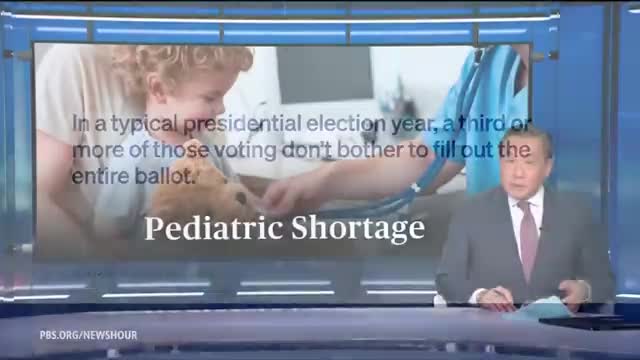Pediatric Care Crisis Deepens as Residency Applications Plummet
This article was created by AI summarizing key points discussed. AI makes mistakes, so for full details and context, please refer to the video of the full meeting. Please report any errors so we can fix them. Report an error »

This year, the number of medical school graduates applying for residency programs has reached a record high, yet the number choosing to specialize in pediatrics has significantly declined. This trend raises concerns about the growing shortage of pediatric specialists, particularly in critical areas such as neurology and pulmonology, leading to longer wait times and increased travel for families seeking specialized care.
Parents have shared their experiences of navigating the healthcare system, highlighting the challenges they face in securing timely appointments for their children. One parent recounted the difficulty of scheduling a well-child check, only to be informed of a waiting list that had not moved in a year. Another parent described a harrowing experience when their child suffered a seizure, only to be told that the next available appointment with a neurologist was months away. Such delays can have serious implications for children with special needs, as evidenced by one family's struggle to find a neuropsych evaluation, which has an 18-month waitlist.
Dr. Sally Permar, head of the pediatrics department at Weill Cornell Medicine, addressed the reasons behind the decline in pediatric residents. She noted that the financial burden of medical school debt, coupled with lower salaries in pediatrics compared to adult medicine, discourages new graduates from entering the field. Pediatricians often rely on government and commercial insurance, with Medicaid reimbursements being particularly low, which contributes to the financial challenges faced by those in the specialty.
The long-term consequences of this shortage are concerning, as early access to pediatric care is crucial for preventing chronic health issues. Dr. Permar emphasized that without adequate access to preventive care, society may face greater health costs in the future. Certain communities, especially rural areas, are disproportionately affected, with some lacking any pediatric providers.
To address these issues, Dr. Permar suggested that the Centers for Medicare Services reconsider how pediatric services are valued, advocating for a shift in focus from surgical procedures to preventive care. As the healthcare landscape evolves, the need for systemic changes to support pediatric care and attract new specialists becomes increasingly urgent.
Parents have shared their experiences of navigating the healthcare system, highlighting the challenges they face in securing timely appointments for their children. One parent recounted the difficulty of scheduling a well-child check, only to be informed of a waiting list that had not moved in a year. Another parent described a harrowing experience when their child suffered a seizure, only to be told that the next available appointment with a neurologist was months away. Such delays can have serious implications for children with special needs, as evidenced by one family's struggle to find a neuropsych evaluation, which has an 18-month waitlist.
Dr. Sally Permar, head of the pediatrics department at Weill Cornell Medicine, addressed the reasons behind the decline in pediatric residents. She noted that the financial burden of medical school debt, coupled with lower salaries in pediatrics compared to adult medicine, discourages new graduates from entering the field. Pediatricians often rely on government and commercial insurance, with Medicaid reimbursements being particularly low, which contributes to the financial challenges faced by those in the specialty.
The long-term consequences of this shortage are concerning, as early access to pediatric care is crucial for preventing chronic health issues. Dr. Permar emphasized that without adequate access to preventive care, society may face greater health costs in the future. Certain communities, especially rural areas, are disproportionately affected, with some lacking any pediatric providers.
To address these issues, Dr. Permar suggested that the Centers for Medicare Services reconsider how pediatric services are valued, advocating for a shift in focus from surgical procedures to preventive care. As the healthcare landscape evolves, the need for systemic changes to support pediatric care and attract new specialists becomes increasingly urgent.
Don't Miss a Word: See the Full Meeting!
Go beyond summaries. Unlock every video, transcript, and key insight with a Founder Membership.
✓
Get instant access to full meeting videos
✓
Search and clip any phrase from complete transcripts
✓
Receive AI-powered summaries & custom alerts
✓
Enjoy lifetime, unrestricted access to government data
30-day money-back guarantee
